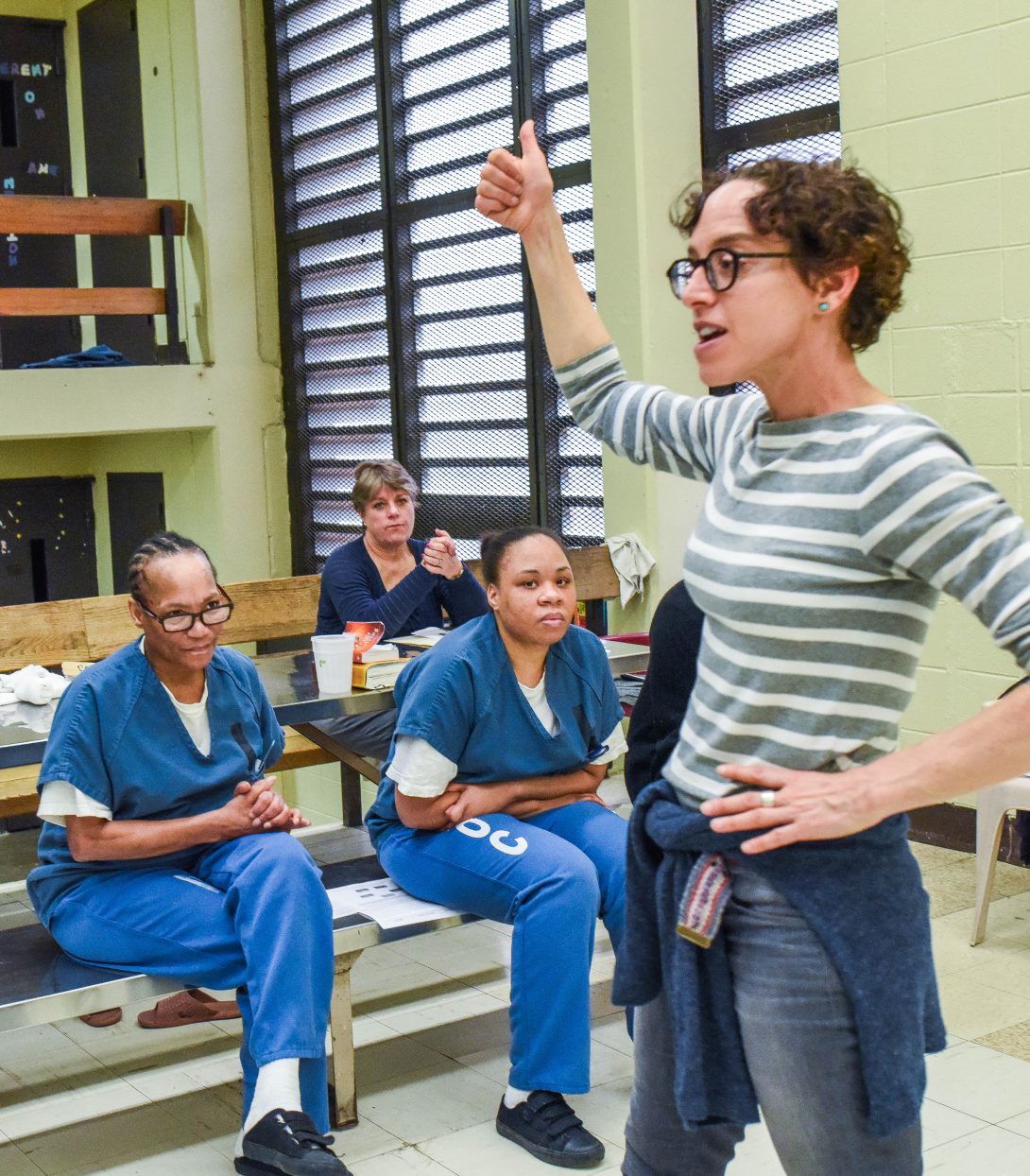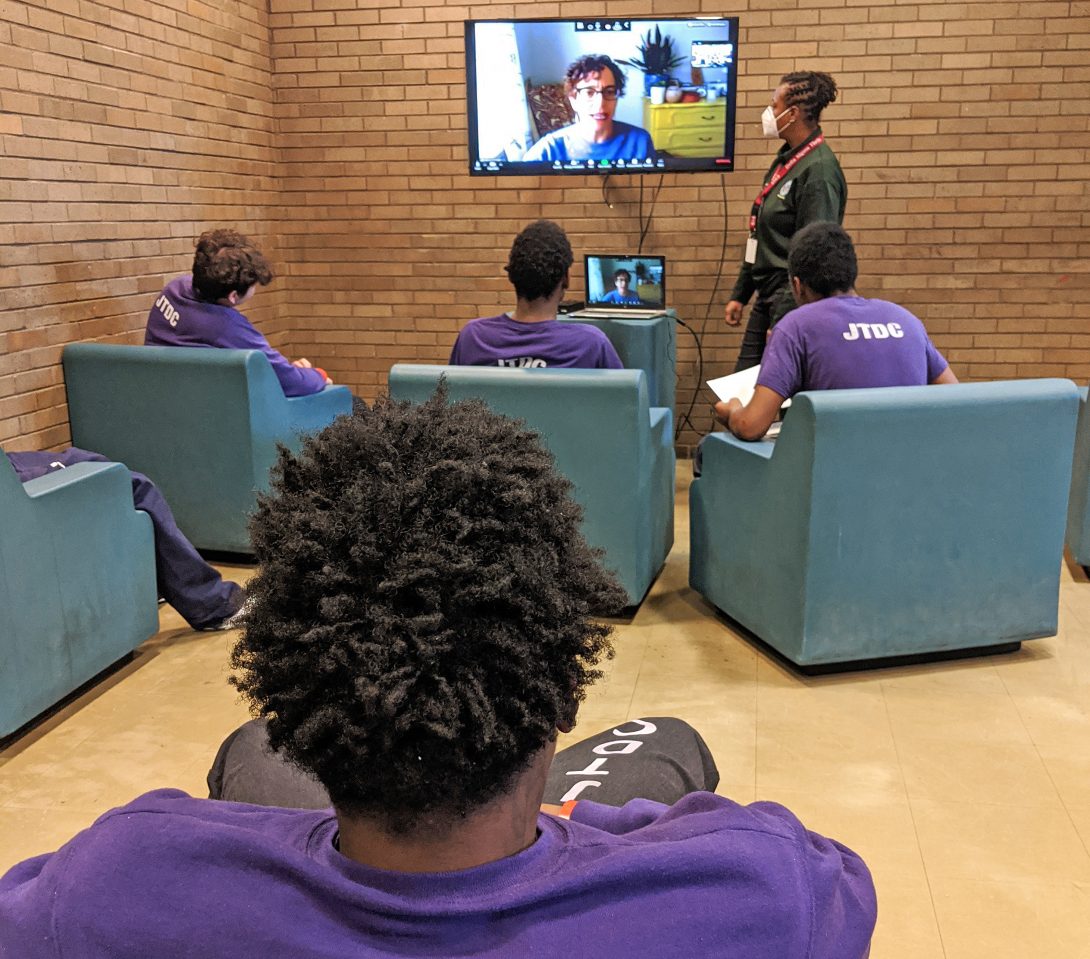Change From the Inside
UIC College of Nursing’s Correctional Health Initiative aims to improve the health of an underserved population.
Part 1

“We’re not going to live in the world I want to live in if I don’t train people to make change happen,” says Rebecca Singer, clinical assistant professor in UIC’s College of Nursing. Singer helps lead a community health practicum that brings Nursing students into the Juvenile Temporary Detention Center. The program aims to improve health literacy among incarcerated individuals, show juveniles a path to study health profession and introduce UIC students to the social determinants of health.
UIC Nursing students create a health curriculum and present it to the populations at the two detention centers. Singer notes that the participants are awaiting trial, and therefore innocent until proven guilty.
Jessica Leonard BSN ’17, is pursuing a Doctor of Nursing Practice at UIC and completed a practicum at the Juvenile Temporary Detention Center last summer. She taught relaxation techniques such as guided imagery, yoga and deep breathing and engaged in conversations about how bodies react to stress and ways to control it.
“It gave me a chance to push myself as a teacher and role model. I sensed toward the end that they began to look up to me. They saw how well I was doing and how young I was,” says Leonard who notes that she was not that much older than some of the students.
Singer Quote
Everyone wants to be healthy. We might not always act in ways that benefit our physical, emotional and psychological selves, but it’s the rare person who doesn’t care. For these people, it’s even harder, so we try to give them some tools to make better choices.
Part 2

Singer’s Nursing students get a front row seat to the incarceration system and the disparities that feed it. She says it’s an opportunity for them to draw their own conclusions about the system, and if they find it unjust, change it in the future.
“When we look at the population of people who are incarcerated in our country, it’s disproportionately Black and brown people who, because of lower economic status and lack of access to health care have poor health outcomes. They’ve typically received inadequate care before, during and after detention,” says Singer.
In line with UIC’s commitment to social justice, the College of Nursing has formal relationships with other correction departments as well and offers one-on-one visits with individuals on early release from jail to help them access primary and mental health care at the college’s Mile Square Health Center in Humboldt Park.
“Everyone wants to be healthy. We might not always act in ways that benefit our physical, emotional and psychological selves, but it’s the rare person who doesn’t care. For these people, it’s even harder, so we try to give them some tools to make better choices,” Singer concludes.